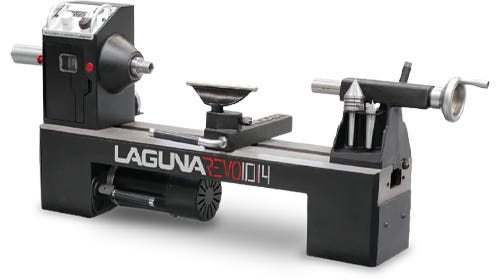Bosch stands its ground after SawStop ruling
SawStop LLC was recently issued a favorable preliminary ruling in its ongoing patent-infringement lawsuit against Robert Bosch GmbH and its subsidiary Robert Bosch Tool Corp. for the Bosch Reaxx Jobsite…
SawStop LLC was recently issued a favorable preliminary ruling in its ongoing patent-infringement lawsuit against Robert Bosch GmbH and its subsidiary Robert Bosch Tool Corp. for the Bosch Reaxx Jobsite Table Saw. Based on Bosch’s response, the controversy is far from over.
In September, administrative law judge Thomas B. Pender at the U.S. International Trade Commission issued a ruling saying that the Reaxx infringes on SawStop’s safety technology patents. The ruling follows SawStop’s complaint filed in July 2015 that seeks an injunction from the ITC that would stop Bosch from importing its saw from Germany, where it is manufactured.
“Based on the foregoing, it is my Initial Determination that there is a violation of Section 337 of the Tariff Act of 1930, as amended, 19 U.S.C. § 1337, in the importation into the United States, the sale for importation, or the sale within the United States after importation of certain table saws incorporating active injury mitigation technology and components thereof, in connection with the asserted claims of U.S. Patent Nos. 7,895,927 and 8,011,279,” Pender wrote in the ruling.
Meanwhile, Bosch maintains that its safety technology does not violate any of its competitors’ rights. Bosch North America spokeswoman Linda Beckmeyer has explained in previous interviews with Woodshop News that the Bosch Reaxx job-site table saw is based on more than a dozen patented innovations done by the Power Tool Institute, with engineers at the Robert Bosch Tool Corp. in Mount Prospect, Ill. After the recent ruling, she says Bosch is still standing its ground.
“At this time legal proceedings are still under way. The International Trade Commission (will review the initial determination provided by the Administrative Law Judge on Sept. 9, 2016, as well as additional arguments from the parties, before it makes any decision in the matter. The commission’s decision is not expected until early January 2017. Contrary to any other implication, the patent legal proceedings are ongoing and not final,” Bosch said in a statement.
Public opinion on the matter is mixed, according to discussions on blogs and other social media. One school of thought supports SawStop pursuing the litigation as a matter of business in a capitalist society. Other positions suggest that effective public safety measures shouldn’t be a matter of legal consequences but that, from an ethical standpoint, should be supported and even mandated by government agencies to protect consumers. But SawStop president Stephen Gass, who is also a patent attorney, says it’s the U.S. patent system that enabled the safety technology to get to the market to begin with.
“We have invested millions of dollars in research and development to protect woodworkers from serious injury and our inventions have been awarded numerous patents. Bosch chose to introduce the Reaxx saw in disregard of our patents and we were left with no alternative but to defend our patent rights in court. We are very pleased Judge Pender confirmed that Bosch infringes our patents,” Gass said in a statement.
Bosch is now pursuing its own claim of patent infringement against the competitor filed in the U.S. District Court for the Northern District of Illinois. The ongoing litigation has no current effect on distributors’ ability to buy or sell Bosch Reaxx table saws.
“It is disappointing that a competitor is continuing its campaign to stop the sale of patented Reaxx technology to consumers. The patents asserted against Reaxx are based on applications filed more than 15 years ago; Bosch does not believe they apply to Reaxx technology. In addition, Bosch believes that if the U.S. Patent and Trademark Office had complete information it would not have issued certain patents in the first place,” the Bosch statement said.
This article originally appeared in the November 2016 issue.







